10 Books to Keep Us at the Top of Our Game
A MiddleWeb Blog
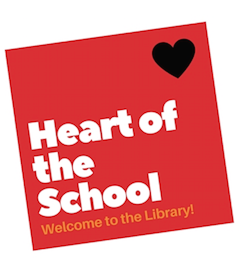
Over the years, I’ve learned it is almost impossible to teach and not learn as well. I’ve learned so much from students, colleagues, and the communities, and for 24 years I’ve stayed true to the vision of teacher (and now principal) as learner.
One way I’ve done that is to read all of the professional books I can. MiddleWeb has been instrumental in that! Did you know about the book review program MiddleWeb offers? You get new, high quality professional books FREE! In return you read them and review them for fellow educators. Take a peek at the program specifications here and some reviews here.
Some books just keep on giving
I have read many great new books through MiddleWeb’s review program and through other sources (yes, including my personal funds…haven’t we all?!)
But there are some books that I return to again and again. Oldies but goodies (and a few notable newbies) that continue to guide my work even though I may have first read them twenty years ago. As you move further into the new academic year, I want to share the 10 education books that have most impacted my work as an educator.
Rita’s Top Ten Edu-Books
1. Cooperative Discipline by Linda Albert
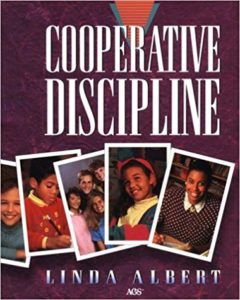
More important to me, Albert teaches the four main student needs that, if not met, may result in poor behavior. She offers very practical tools to help teachers determine if a student is seeking attention, has a fear of failure, needs power, or in rare cases, is seeking revenge. Then Albert shares strategies for proactively meeting students’ needs before they misbehave. I re-read this book a couple of times a year for my first ten years in the profession and continue to consult it frequently.
2. The First Days of School by Harry and Rosemary Wong
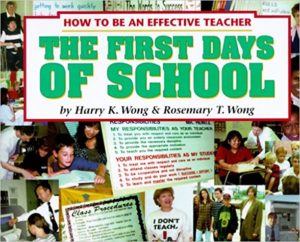
This is another book that I have read and reread and read again. It had, however, been off my radar until recently when I found a copy at the local thrift shop, bought it and perused it again. I was amazed at how many basic but super-helpful ideas and strategies I had let slip from my practice. I shared that copy with several staff members and we all agreed, it’s a must read book for educators, if not the last word.
3. The Dreamkeepers by Gloria Ladsen-Billings
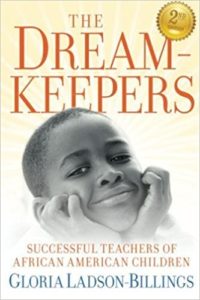
She observed with the goal of noting what made these effective teachers different and shared her findings, essentially giving birth to the notion of the importance of culturally relevant pedagogy. The book is written mostly in narrative format, is interesting, entertaining and instructional, and is still pertinent today.
4. What Great Teachers Do Differently and/or What Great Principals Do Differently by Todd Whitaker
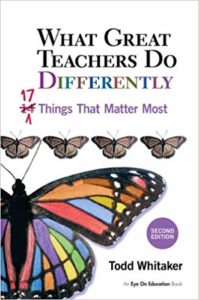
Each example of what great teachers do is clearly explained, and none are “pie-in-the-sky” strategies. All are doable, and the books helped (and continue to help) me make goals for improvement for my professional practice (including in my new role as a principal).
5. When Kids Can’t Read by Kylene Beers
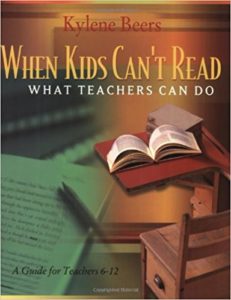
Beers’ book is inspirational and practical. When I taught “struggling” readers in grades seven through twelve, I found her book to be invaluable. I still consult its treasure trove of strategies frequently.
6. Literacy Essentials by Regie Routman
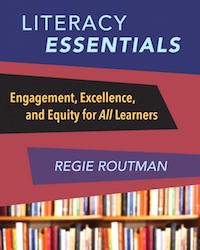
The bottom line is that this book will help you improve your school’s literacy environment by helping you create an optimal culture for literacy learning through use of best practices, promoting equity, and helping students come to love reading and writing.
7. Visible Learning by John Hattie
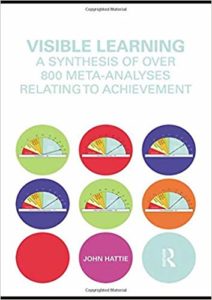
Hattie took available meta-analyses and meta-analyzed them! He published his original findings in a list of 252 influences on learning ranked by effect strength. The results (which he continues to refine) are at the very least interesting fodder for critical conversations about pedagogy. (There are LOTS of Visible Learning books growing out of Hattie’s work. Check out his page at the Corwin site. 10 Mindframes for Visible Learning: Teaching for Success is a recent book written specifically for teachers.)
8. Savage Inequalities by Jonathan Kozol
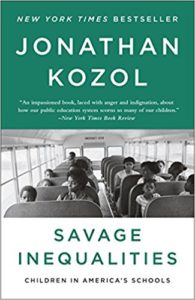
He takes readers to some of America’s most impoverished communities with crumbling schools, limited technology, and a revolving door of leaders who have little positive influence. The stories are by turns inspirational and heartbreaking, and they will wake you up to the realities faced by many of our teachers, school children, and families.
9. First Aid for Teacher Burnout by Jenny Rankin
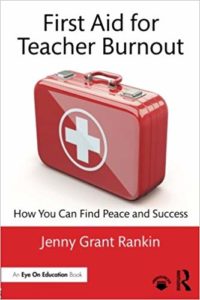
For me, reading it was truly a salve for my tired teacher-soul. I have shared it frequently and think it should be available in every school’s staff room.
10. Demystifying Data Analysis by Mike Schmoker

Schmoker reminds me to keep it simple and when I look at data to keep two questions in mind. One, are students succeeding in the subjects I teach? Two, within those subjects, what are the areas of strength or weakness? By focusing on these two questions, I can set goals that will truly impact student achievement. No talk of stanines or standard deviations needed! (You’ll find Schmoker’s latest ASCD book here.)
What’s on your Top 10 list?
Not only am I interested to know what you think about my list, I am curious to hear what would be on yours. Please share your thoughts on the best education books in the comments. If you don’t have time to mention 10, just mention a couple. Or just one! Be sure to tell us why. We’re all looking for great books to help us stay at the top of our game.
In the meantime, happy reading!































What a great collection of books! (and big thanks for including me – I’m super honored). This is such a great list for educators to follow (filling in the gaps as needed – e.g., I’m excited to read Demystifying Data Analysis by Mike Schmoker for the 1st time; I love reads that turn traditionally-overcomplicated issues simpler!), and would be great for educator book clubs to follow. Thank you for yet another superb and helpful post!
Your book is AMAZINGLY helpful, Dr. R! I can’t wait to hear what you think of Schmoker’s article.
Thank you! :-))) …and OMG, I just finished Schmoker’s article and tweeted it out. Fantastic! It’s so true what he said of how data experts typically over-complicate things: “The experts’ tendency to complicate the use and analysis of student achievement data often ensures that few educators avail themselves of data’s simple, transparent power.” I love that. What a refreshing read! Thanks tons for the recommendation! :-)
You are welcome! It resonated with me too! Hugs!
xoxo!!